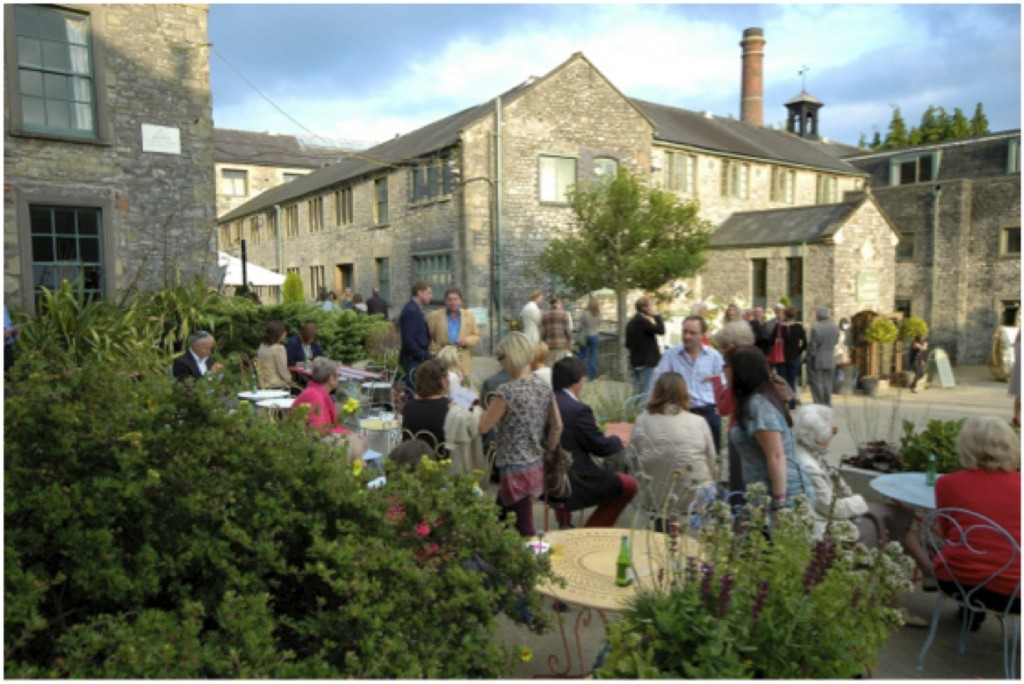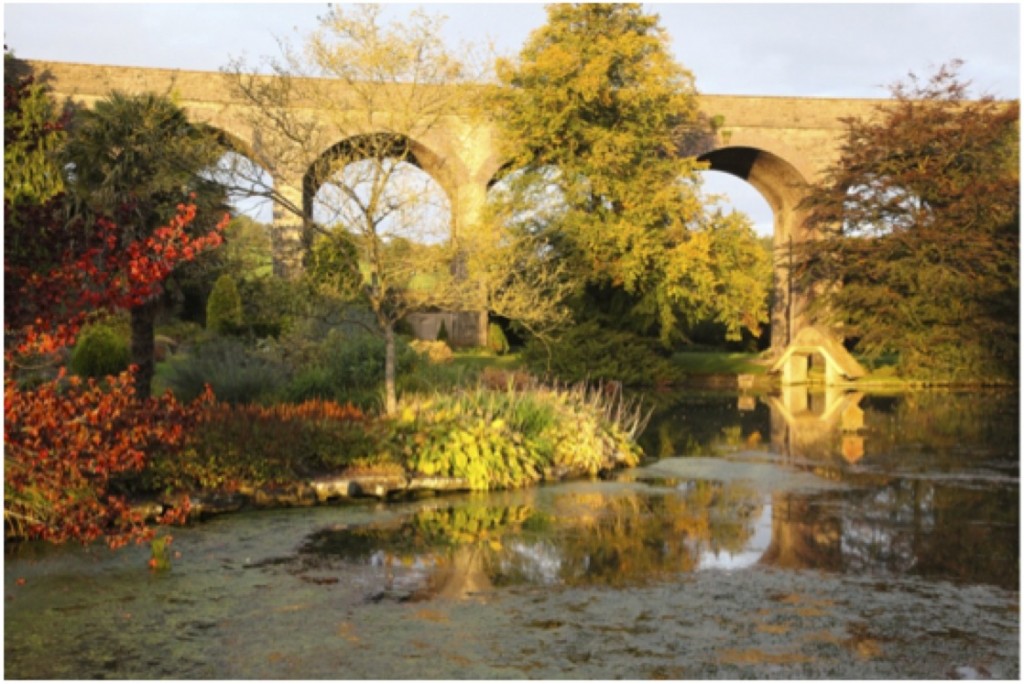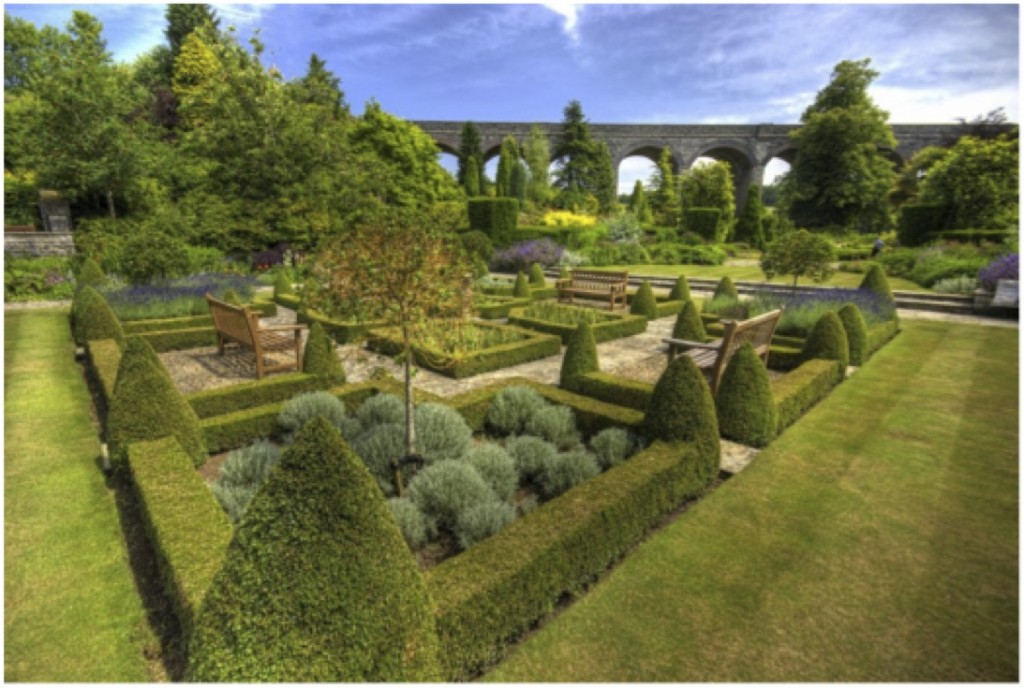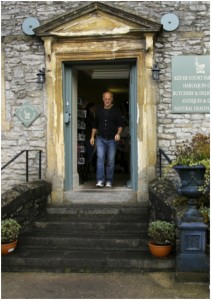Six months ago Roger Saul, founder of the iconic luxury goods brand Mulberry, launched the first phase of a regeneration scheme to transform a former Somerset mill and one-time home to Babycham, into a unique designer shopping outlet.
Here Anne Gorringe examines the fascinating history and bright future of the Kilver Court.
The first phase of the £10m regeneration scheme of historic Kilver Court in Shepton Mallet is now well underway. The scheme, it is hoped, will create hundreds of jobs and boost the town’s economy in the years to come.
But it is the traditional skills of the area that are key to creating a new future for the site.
With local entrepreneur Roger Saul behind the scheme, confidence is high that it will be a major success.
Roger has a track record for creating brands and delivering on environmental projects – international leather goods group Mulberry and award-winning Charlton House Hotel to name just two.
“In today’s climate the creative re-use of existing structures and buildings, rather than relying on new build is an important element of sustainability,“ says Roger, who has committed to using local craftspeople to restore the historic buildings.
Kilver Court gardens are framed by the breathtaking Charlton Viaduct, built in 1874 to take the Somerset and Dorset Railway across the valley. In the late 1800’s the ornamental lake even had a rowing boat for factory workers
Kilver Court's gardens are based on George Whiteleg's 1960s Chelsea gold medal winning design.
Kilver Court already attracts thousands of visitors a year. On site is a gorgeous secret garden, wellness centre and the Sharpham Park Farm Shop, plus the Mulberry factory outlet, based there since 1996. But the Designer Emporium adds an exciting new element.
Once the headquarters of the Showerings drinks company – famous for launching Babycham, Kilver Court has a history of commercially successful restoration and re-use of some existing buildings.
“This is a recycling challenge on a grand scale. Never mind baked bean tins or bottles, we’re recycling a whole range of buildings!”
"The history of Kilver Court goes back to at least the 1500s and it was once the site of the biggest woollen mill in the area.”
“The last 100 years have seen its use change from lace and machine manufacture to drinks production and finally designer fashion,” explains Roger.
Shepton Mallet itself has been a cross roads for commerce for centuries, starting with the Roman Fosseway passing through. Its early history, as its name suggests. was based on sheep and the wool trade. By 1500 a thriving textile industry had grown up and Kilver Court was at its centre. However this wealth floundered in the Industrial Revolution of the early 1800s as the Luddites torched mills throughout the valley.
In the mid-19th century Ernest Jardine, a successful lace and silk maker from Nottingham, bought the site and set out to restore production. He also created the Gardens as a recreational space for his factory workers, the old millpond became an ornamental lake with wildfowl and even a small rowing boat for their use. They were known as Jardine’s Park and Vegetable Gardens. By 1907, 128 people were employed producing lace-making machinery.
The Showering family have made cider in Shepton Mallet for over 200 years, and set up their first brewery behind the former Ship Inn, which sits at the front of the current Kilver Court site.
In 1947 they produced the iconic sparking perry (pear cider) known as Babycham, which became a huge success. In 1960 the gardens were re-landscaped based on the Chelsea Flower Show gold medal winning design of George Whiteleg.
Showerings’ success took them to great heights in the drinks industry; eventually Kilver Court became the headquarters of Allied Domecq, one of the biggest companies in the UK drinks industry. Part of the original brewery in Kilver Street opposite still remains and is today a thriving cider making business, ‘The Somerset Cider Company’, owned by Magners.
When Roger Saul acquired Kilver Court in 1996 it became the home for Mulberry and its world famous factory shop. Roger once again redesigned the garden adding his own touch, but still retaining the patina of the past.
As part of his new plan to transform the site into an upmarket Designer Emporium, Roger Saul has tempted in luxury brands from Myla to Cabbages and Roses. And his special pre-christmas designer sales weekend in November pulled in the crowds.
As for the future, the continued development of the site goes on. "It's all a bit step-by-step at the moment, but we have plans to open a 20-room hotel here too," he says.
"This is very much about regeneration. Somerset and Dorset is a desert area for designer shopping. It's very difficult to find designer clothes around here, and there's such a strong customer-base for it. There is a huge catchment of private schools here, and a large number of people who commute up to London."
Long-term plans include covering over the courtyard to create additional shopping and restaurant areas there. But, there are some logistical problems to overcome, not least of which is that this currently links guests to areas of the building currently used as a wedding venue.
The beautiful surroundings, which can include the use of the ballroom, and/or a marquee in the grounds, have made it popular with brides, “We have 30 weddings booked in the coming year,” he says.
The centre also offers business rooms for meetings.
• For more information, see www.kilvercourt.com

































